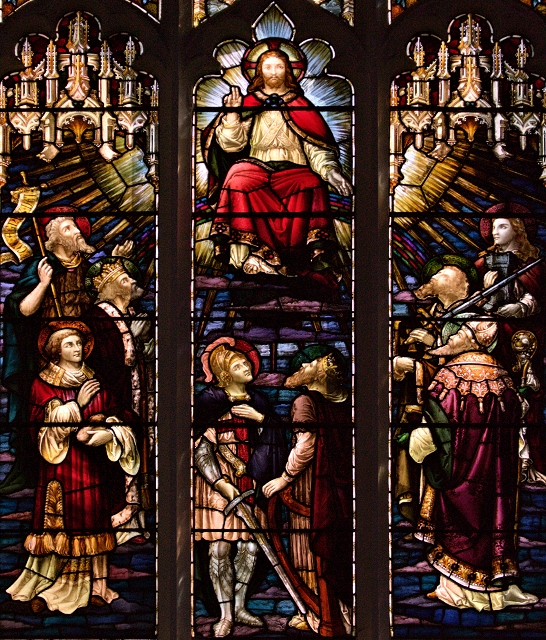
© Copyright David Dixon and licensed for reuse under this Creative Commons Licence.
Today’s hymn from Sing Praise is “Gracious God, in adoration” by another writer new to me, Basil Bridge. It’s in the same 87.87.87 metre as yesterday’s (God of Freedom, God of Justice) but the suggested tune here is ‘Rhuddlan’.
The first three verses are a call to worship, with the reminder firstly of the saints (those Christians, and especially martyrs, who have gone before us through life and death into the eternal presence of God) who though unseen, call us to join in their worship. The second verse speaks of the silent praise of earth and sky, and the call of all Earth’s living creatures echoing that of the saints. The third verse is the call of Jesus “whose cross has given every life eternal worth”.
This ‘call’ of saints, creation and Jesus himself constitutes the fifth line of each and every verse in the hymn: “Come with wonder, serve with gladness”. This neatly links the call to worship with the practical task also commanded by Jesus in the Lord’s prayer and repeated at the end of verse 3: “Let God’s will be done on earth”.
The second part of the hymn, then, continues the theme of the last few days of God and people together serving other people in need and dealing with injustice. We are called, as we come with wonder, to ‘serve with gladness’ by sharing our bread (symbolically, anything we have) with those in need, and to seek peace with justice, living in hope, “for the Lord is near!”
Although I didn’t use this hymn for our Sunday service at St Luke’s Eccleshill (because it didn’t fit the theme for this particular Sunday) I thought this was a sound hymn, competently put together, and I wished I had a different tune from “Rhuddlan” which is somehow too abrupt and militaristic for the words. The fifth line of each verse is a constant chorus: “Come with wonder, serve with gladness” – and somehow I felt it needed a tune which would highlight this line. I haven’t solved that problem in my own mind, but I wondered about St Helen? That’s the tune commonly used for “Lord enthroned in heavenly splendour”, and in that hymn the fifth line “Alleluia Alleluia” is also a constant in each verse.